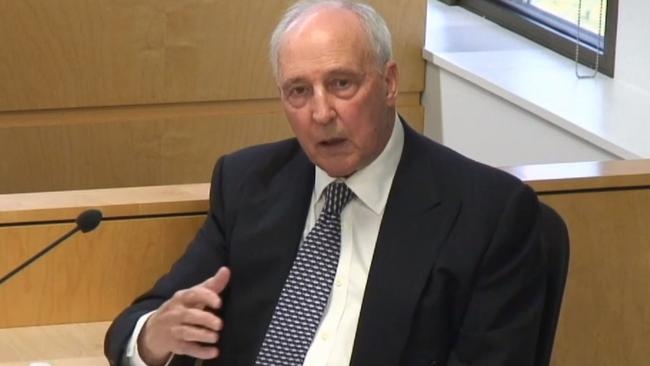Paul Keating hits out at Reserve Bank of Australia on superannuation
There will be no wage increases this year whether there is a rise in the superannuation guarantee levy or not, says Paul Keating.

Former prime minister Paul Keating has hit out at the Reserve Bank of Australia for supporting arguments against further increases in the superannuation guarantee levy.
“The RBA is helping the government knock off the 2.5 per cent,” he told the annual conference of the Association of Superannuation Funds of Australia (ASFA) on Wednesday.
Mr Keating said recent comments by Reserve Bank governor Philip Lowe that an increase in the superannuation guarantee levy, from the current 9.5 per cent to 10 per cent in July and 12 per cent by 2025, would come at a cost of wage rises were “confusing an old argument.”
He said working people would not be receiving any increases in wages this year regardless of whether there was an increase in the superannuation guarantee levy or not.
“I don’t see how Australia has any chance of real wages growth for the foreseeable future.”
He said there had been a 10 per cent increase in labour productivity since 2012 “none of which has gone to wages”.
“Since 2012 there has been no real wages growth,” he said.
“Therefore if the employees don’t pick up the 2.5 per cent increase (in super) then ordinary working people get nothing.”
He said the RBA could “publish bulletins every month” but “they can’t deny that working Australians have had no wage growth in eight years.”
Mr Keating said the increase in the super guarantee levy from 9.5 per cent to 12 per cent was needed to make sure that workers got part of the 10 per cent increase in productivity.
His comments come as the Scott Morrison government is debating whether to go ahead with the legislated increase in the levy to 10 per cent from July 1 this year.
The government has said it will make an announcement on the move before the May budget.
Super not for home buying
Mr Keating strongly objected to the idea that people should be able to access some of their superannuation savings to help buy a home.
He said allowing people access to more money for a deposit on their home would only push up the price of housing further.
“If you give them money for housing, it will only push up the price of housing.”
He said the problem of housing affordability in Australia was one of lack of supply.
He said superannuation funds could help relieve this by investing in public rental housing and built to rent housing developments.
“Super funds can create a whole new asset class in built to rent and can fund public rental housing,” he said.
He said investing in build to rent housing projects had the potential to deliver solid investment returns for the super funds as well as taking pressure off the housing market.
Mr Keating said increasing the superannuation guarantee levy to 12 per cent was important in ensuring that people had sufficient savings to retire on without having to rely on the government pension.
Pressure on the budget
He said the ageing of the population meant that there would only be three working people for every Australians over 65 in a few years time, down from six people when the compulsory super system got underway.
He said this could mean added pressure on the federal budget and a low level of age pensions.
“People will only have adequate levels of funding in retirement if they can provide for themselves,” he said.
“They are never going to get it off the back of the budget when there are only three taxpayers per person over 65 to carry the tax burden of the country.”
Mr Keating said the tax system encouraged investment in housing with a combination of negative gearing and a capital gains tax rate on housing which was half the rate on income.
He said this was encouraging people to buy houses as an investment and was pushing young people out of the housing market.







To join the conversation, please log in. Don't have an account? Register
Join the conversation, you are commenting as Logout